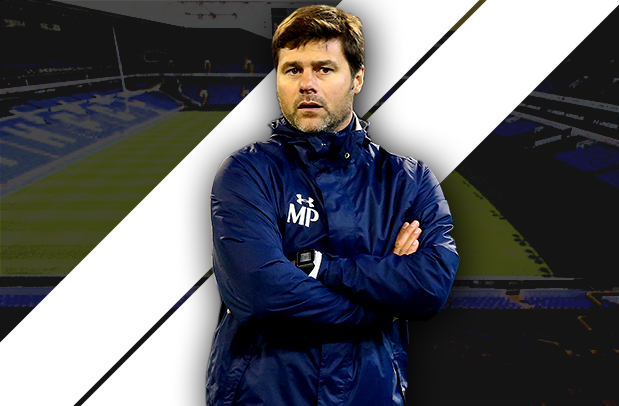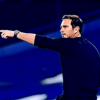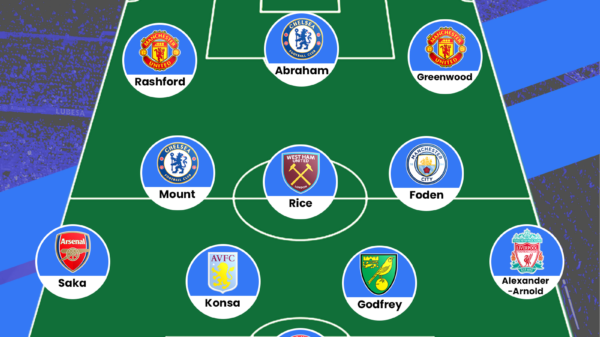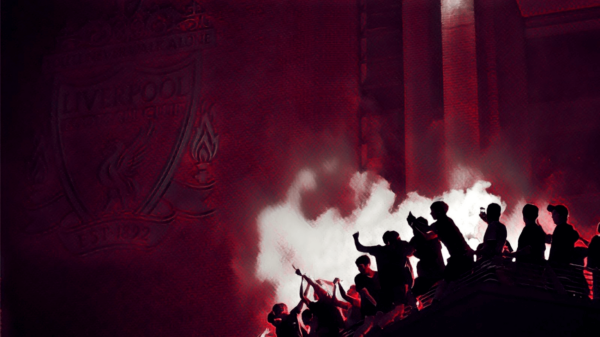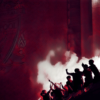Sam Marlow explores the tactical changes that Pochettino has made to the Tottenham Hotspur team for the first few fixtures of the 2016-17 season.
When looking at the table compared to this time last season, Mauricio Pochettino will be very satisfied, with Tottenham unbeaten in their first three games and having played some very resilient opposition. However, all is not what it seems. The North London side have lacked any fluency in their play, and they have only led a game for a total of ten minutes all season.

You can forgive Spurs for a slow start considering the heavy burden a summer of international football has placed on their squad. This isn’t unique to Tottenham however, and what will be of more concern to Pochettino is the apparent dependency on Dembele. Last season, the Belgian repaid the faith shown in him and finally performed at the level that was expected of him when he first signed from Fulham. In a midfield trio of Dier, Alli and Dembele, Tottenham conducted most of their play through the centre of the park, relying only on Rose and Walker for width. With Dier protecting the defence, and even occasionally dropping in to make it a back three, Dembele was relieved of his defensive duties. The licence to drive forward, combined with the fluid and free movement of Alli, Eriksen and Lamela meant defence and attack were connected.
Fast-forward to this season and this is not the case at all. Transitioning from defence to attack has been difficult at times for Spurs. In all of the games without Dembele, Pochettino has lined up with Dier and new signing Wanyama. This double-pivot has meant a more conservative approach. Spurs have scored one goal in each of their games so far which may be cause for concern. Pochettino has not put Wanyama in, expecting him to play the exact same role as Dembele, but instead has made some very interesting tactical changes, and adapted his system completely.
Starting out with the defensive organisation of the team, the back four remains the exact same, with Alderweireld and Vertonghen anchoring the defence and Rose and Walker not shying away from their attacking duties. Whereas last season, Dier would sit in front of the defence and distribute the ball out to Dembele or Alli, this season is slightly different. Pochettino seems to have acknowledged the loss of attacking fire power, and is instead looking not to concede. Everton and Liverpool’s goals were from a free kick and a penalty respectively, so it would appear this approach is working. What happens when Rose and Walker advance now, is completely different. Rather than sit in the centre of the park, Dier and Wanyama cover the flanks, acting almost as inside full backs. Guardiola has used inside full backs quite a lot as a method to stop counter attacks; the inside full back can man mark, whist the centre backs defend the space in behind. It appears to be working to a degree, and it will be interesting to see how Pochettino changes the defensive side of the game once Dembele returns.
Moving onto the attacking unit, the changes are much less nuanced and easy to see. First and foremost, Kane has been playing as a number ten, with new signing Janssen leading the line. Kane of course played primarily as a number a ten in the youth teams at Spurs, and it was only through necessity that he has played in the more advanced role. Janssen looks like a busy and athletic player, dragging defenders out of position and holding the ball up, bringing others into play. The initial signs of this approach are positive, although there aren’t any goals to justify Kane and Janssen’s new roles yet. With Kane operating in the space behind Janssen, and Janssen pulling defenders out of position, one would assume Kane will still get a decent goal tally, even though his starting point is further away from the net. For so many years in the Premier League, one up top has been in fashion. There seems to have been a shift amongst the top teams to defending from the front, pressing play, and winning the ball high up the pitch. This means that two up top isn’t necessarily a negative when it comes to defending as a collective.
Pochettino’s flexibility has also meant that he has adapted the way Tottenham attack to adjust to Dembele’s absence. Large portions of their attacks last season came through the central channels, but this year, the goals from open play have come from crosses and the wider areas. This is clearly deliberate. The different role Lamela has played is indicative of this fact. Rather than play as an inside forward on the right hand side of the pitch, the Argentinian has spent a lot of time out wide on the left. Of course he still has the freedom to move where the space is, but when Spurs are shaping up to attack, their options lie primarily out wide.
The lack of fluency can be attributed mainly to Eriksen and Alli. The space behind the striker is now occupied by Kane, and the centre of the park is dominated by Dier and Wanyama. Over the coming weeks and months, it will be interesting to see how Pochettino reconciles Kane’s deeper role with Eriksen and Alli. In the first few games, the attacking midfield pairing have seemed lost and exposed. It appears that playing Eriksen and Alli, as well as Kane, is Pochettino’s solution to the issues in transitioning from defence and attack (alluded to in the start of this article). Dembele cannot return soon enough for the Argentinian coach, although he has dealt well with the challenge so far.
Looking forward, Tottenham have a huge challenge in competing on 4 fronts. The likelihood is that the initial stages of the cup competitions will feature youngsters such as Marcus Edwards and Cameron Carter-Vickers. The positive side of Dembele’s absence is that Spurs are now reasonably well versed in a different system. At times last year Pochettino was missing a plan B, and once teams had worked out how to play against Tottenham, they really struggled to find a solution.
- What do Spurs need to do to compete in Europe next season? - May 24, 2017
- Analysis: Why are Leicester City struggling? - February 10, 2017
- Bielsa, Pochettino and Georges-Kévin N’Koudou –“Running is everything” - September 26, 2016




















































